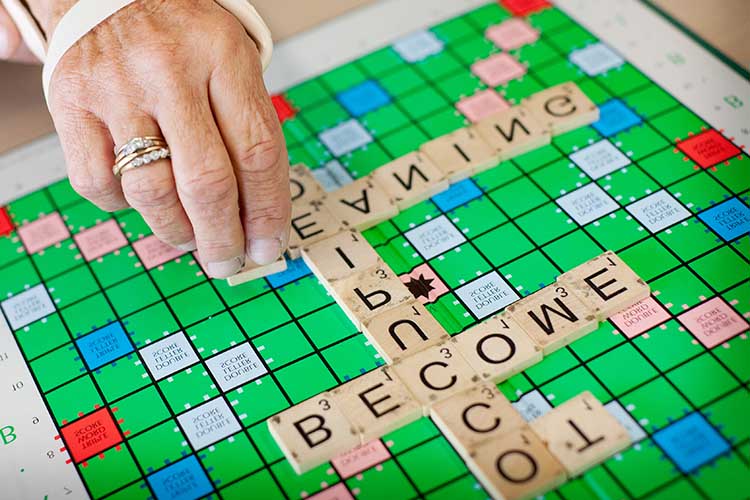Spelling and capitalisation
One essential aspect of good writing is accurate spelling.
How can I check my spelling?
Spell checker
With the spell checker, you need to ensure the spell check is on the correct setting, e.g. English (New Zealand) if you are studying in New Zealand. Spelling mistakes are indicated by a red squiggly line. Unfortunately, the dictionary within your spell check is not extensive so it may not know some of the more academic or technical words you use. In addition, it will not pick up mistakes if the mistake is a valid word, for example, if you type ‘form’ instead of ‘from’. Computer spell checkers are useful editing tools, but they can never replace human knowledge of spelling rules, homonyms, and commonly misspelled words.
Grammarly is a free add-on to the web browser Chrome which can help with identification of spelling mistakes and grammatical errors. Grammarly also includes a thesaurus and gives explanations for corrections.
Dictionaries
Use an online dictionary (e.g. dictionary.com, thefreedictionary.com) or a paper dictionary like the Oxford English Dictionary to check any words that you are unsure how to spell.
Proof reading
After you have read through your essay, ask someone to have another look for any spelling or grammatical mistakes.
How do I know if I've used the right word?
English can be confusing because there are many words that sound or look similar and it is easy to choose the wrong one. Try our spelling test of some of the more commonly misspelled words.

You can find some more commonly misspelled words, as well as clues to help remember the spelling at Oxford Dictionaries. You can also use the online dictionary on the same website.
How can I improve my general spelling skills?
The best way to master new words is to understand the key spelling rules. Keep in mind, however, that some spelling rules carry exceptions. A spell checker may catch these exceptions, but knowing them yourself will prepare you to spell accurately on the first try.
You may want to try memorising each rule and its exception like you would memorise a rhyme or lyrics to a song.
Write i before e except after c, or when pronounced ay like “neighbour” or “weigh.”
- Achieve, niece, alien
- Receive, deceive
When words end in a consonant plus y, drop the y and add an i before adding another ending.
- Happy + er = happier
- Cry + ed = cried
When words end in a vowel plus y, keep the y and add the ending.
- Delay + ed = delayed
- Memorise the following exceptions to this rule: day, lay, say, pay = daily, laid, said, paid
When adding an ending that begins with a vowel, such as -able, -ence, -ing, or -ity, drop the last e in a word.
- Write + ing = writing
- Pure + ity = purity
When adding an ending that begins with a consonant, such as -less, -ment, or -ly, keep the last e in a word.
- Hope + less = hopeless
- Advertise + ment = advertisement
For many words ending in a consonant and an o, add -s when using the plural form.
- Photo + s = photos
- Soprano + s = sopranos
Add -es to words that end in s, ch, sh, and x.
- Church + es = churches
- Fax + es = faxes

Eight Tips to Improve Spelling Skills
And avoid skimming over the page. Focusing on your written assignment word by word will help you pay close attention to each word’s spelling. Skimming quickly, you may overlook misspelled words.
To remember the correct spelling of words. Mnemonic devices, or memory techniques and learning aids, include inventive sayings or practices that help you remember. For example, the saying “It is important to be a beautiful person inside and out” may help you remember that beautiful begins with “be a.” The practice of pronouncing the word Wednesday Wed-nes-day may help you remember how to spell the word correctly.
Many professional writers rely on the dictionary—either in print or online. If you find it difficult to use a regular dictionary, ask your instructor to help you find a “poor speller’s dictionary.”
The spell checker will not solve all your spelling problems, but it is a useful tool. See the introduction to this section for cautions about spell checkers.
You will often misspell the same words again and again, but do not let this discourage you. All writers struggle with the spellings of certain words; they become aware of their spelling weaknesses and work to improve. Be aware of which words you commonly misspell, and you can add them to a list to learn to spell them correctly.
Add these misspelled words to your list and practise writing each word four to five times each. Writing teachers will especially notice which words you frequently misspell, and it will help you excel in your classes if they see your spelling improve.
Sometimes the old-fashioned methods are best, and for spelling, this tried and true technique has worked for many students. You can work with a peer or alone.
Take the necessary time to master the material; you may return to the rules in this section again and again, as needed.
Spelling resources

Using capitals
Here are some important rules for capitalisation.
He decided not to come to the party.
Gerald and I have been cleaning the house all day.
- FBI
- YMCA
- AIDS
- UNICEF
- IBM
- Names of deities: God; the Lord; Jehovah
- Names of people and their titles: David Attenborough, PhD; Diana, Princess of Wales; Mrs A. Bloggs
- BUT NOT a title without a name: the general; the prime minister; the math professor
- Names of specific places: Nelson; Lake Taupo; Trafalgar Square
- Names of days, months, and special days: Monday; January; Ramadan; Waitangi Day
- BUT NOT the names of the seasons: autumn; winter; summer; spring
- Names of specific groups of people, languages and religions: Maori; Asian; Spanish; Hindu
- Names of geographic areas: the Middle East; the North; the South Island
- BUT NOT the names of compass directions: north, west, south, east
- Names of school subjects with course numbers: Accounting 501; Nursing Practice 631
- BUT NOT names of classes without numbers, except languages: economics; Japanese
- Names of specific structures: the Beehive; Park Royal Hotel
- Names of specific organisations: The Warehouse; National Bank; St Mary's School
- Titles of compositions, stories, books, magazines, newspapers, plays, poems, and movies: Star Wars; Lord of the Rings; All Quiet on the Western Front
References
Attributions
English for business success. Parallelism. Lardbucket. Licensed under a Creative Commons by-nc-sa 3.0 license
Hero image: Scrabble letters by Christopher Walkey. Licensed under a Pixabay.com license

